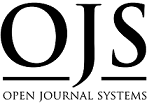IMPLEMENTATION OF RESTORATIVE JUSTICE IN HANDLING THE CRIME OF CORRUPTION COVID-19 AID FUND
Sari
Teks Lengkap:
PDFReferensi
Buku
Barany, L.J., Simanjuntak (et.al), “Bantuan sosial ekonomi di Tengah pandemic Covid-19: sudahkah Menjaring Sesuai Sasaran?†CSIS Commentaries ECON-002-ID, 2020.
Budi Suharianto, Restorative Justice dalam Pemidanaan Korporasi Pelaku Korupsi demi Optimalisasi Pengembalian Kerugian Keuangan Negara, Badan Penerbit Kemenkumham, Jakarta, 2016.
C.S.T. Kansil dan Christine S.T. Kansil, Pokok-Pokok Hukum Pidana – Hukum Pidana Untuk Tiap Orang, Pradnya Paramita, Jakarta, 2007.
Didik Endro Purwoleksono, Hukum Pidana Untaian Pemikiran, Airlangga University Press, Surabaya, 2016.
Luhut MP Pangaribuan, , Lay Judges & Hakim Ad Hoc: Suatu Studi Teoritis Mengenai Sistem Peradilan Pidana Indonesia, Universitas Indonesia Press, Jakarta, 2009.
Jurnal
Henny Saida Flora, “Keadilan Restoratif Sebagai Alternatif dalam Penyelesaian Tindak Pidana dan Pengaruhnya dalam Sistem Peradilan Indonesiaâ€, Jurnal Ubelaj, Volume 3, Issue 2, 2018.
Nasruddin, R., dan Haq, I., “Pembatasan Sosial Berskala Besar (PSBB) dan masyarakat Berpenghasilan Rendahâ€, Jurnal Sosial & Budaya Syar-I, Volume 7, Nomor 7, Juli 2020.
Wuryandani, D., “Dampak Pandemi Covid-19 terhadap Pertumbuhan Ekonomi Indonesia 2020 dan Solusinya. Info Singkat: Kajian Singkat terhadap Isu Aktual dan Strategisâ€. Jurnal Ekonomi, Volume XII, Nomor 15, Agustus 2020.
Yusona Piadi, “Implementasi Restoratif Justice dalam Pemidanaan Pelaku Tindak Pidana Korupsiâ€, Jurnal Rechten : Riset Hukum Dan Hak Asasi Manusia, Volume 1, Nomor 1, 2019.
Peraturan Perundang-Undangan
Kitab Undang-Undang Hukum Pidana (KUHP).
Peraturan Kejaksaan Republik Indonesia Nomor 15 Tahun 2020 tentang Penghentian Penuntutan Berdasarkan Keadilan Restoratif.
Peraturan Kepolisian Negara Republik Indonesia Nomor 8 Tahun 2021 tentang Penanganan Tindak Pidana Berdasarkan Keadilan Restoratif
DOI: http://dx.doi.org/10.33603/hermeneutika.v6i2.7460
Refbacks
- Saat ini tidak ada refbacks.









